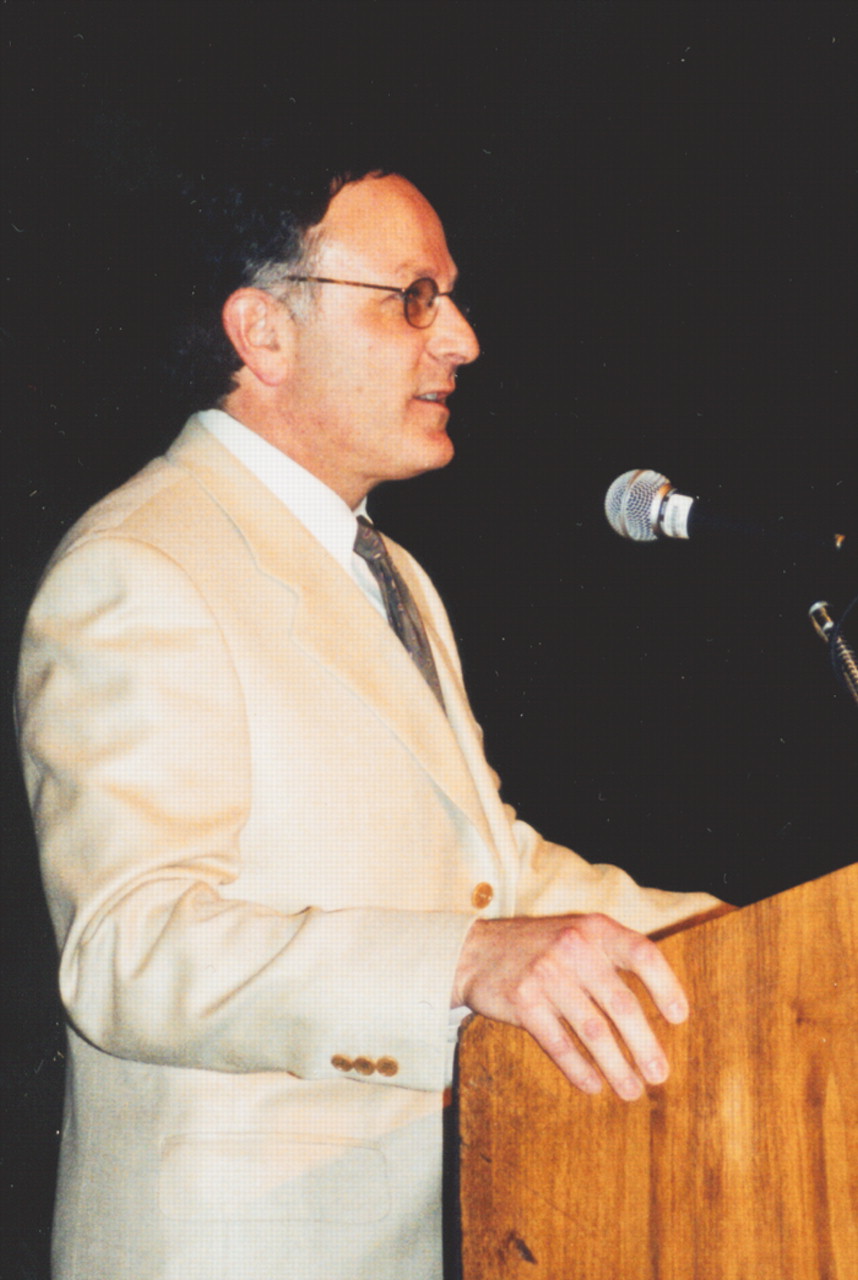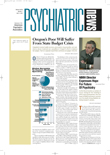Twenty-five years ago, a small group of 11 APA members, concerned with the mental health issues faced by frail and sometimes helpless and troubled elderly, banded together to create the American Association for Geriatric Psychiatry (AAGP).
That “birth,” during APA’s 1978 annual meeting in Atlanta, created a new professional society aimed at educating health care professionals that equating being elderly with being frail, helpless, and troubled was, indeed, a fallacy.
During its 16th annual meeting last month in Honolulu (attended by just over 1,000 mental health professionals), outgoing AAGP President Gary Kennedy, M.D., a professor of psychiatry and behavioral sciences and director of geriatric psychiatry at Albert Einstein College of Medicine and Montefiore Medical Center, reviewed a great deal of evolution within the association over those 25 years.
That “sad view of old age—helpless and troubled with all sorts of problems, destitute”—no longer applies, Kennedy told about 500 people at the meeting’s presidential plenary.
“Today, 25 years later, we are not only concerned about the most frail and infirm, the most vulnerable elderly, but we are also concerned about the mental health needs of active seniors—those persons who have aged ‘successfully’ or ‘productively,’ ” Kennedy noted.
Today, through AAGP’s Geriatric Mental Health Foundation, the association “is taking a more broad perspective—not just as a guild—advocating for mental health professionals, the removal of stigma, and indeed the ultimate stigma of being a mental health professional. . . . We are also advocates for the mental health of older persons. We promote scientific research as well as engage in public outreach and advocacy.”
Indeed the field has grown. As of December 2002, 2,596 psychiatrists were certified by the American Board of Psychiatry and Neurology in the geriatric subspecialty. AAGP closed 2002 with 1,750 active members, all of whom are practicing geriatric psychiatrists but not necessarily board certified within the subspecialty.
Kennedy expressed concern, however, that as the numbers of active, healthy seniors representing the positive aspects of aging continue to rise, the profession is “at risk of losing perspective on the very people that we came together to take care of—the least fortunate, most vulnerable in our society.”
If the profession loses its dedication to that group, which he noted is so often sidelined, confined to nursing homes, and frequently forgotten, “then we also lose our very profession.”
Kennedy noted a significant list of accomplishments during his presidential tenure, including a few of which he was notably proud.
“We had a very close working relationship with Congressman Patrick Kennedy (D-R.I.) on the rollout of Kennedy’s Positive Aging Act during the 107th Congress last year,” he said (Psychiatric News, August 16, 2002). That bill (HR 5077), which AAGP members helped to draft, would provide federal funding mechanisms to promote collaborative, integrated mental health initiatives for seniors within the primary care setting. The bill sat in committee through the end of the legislative session, and Kennedy has stated he will reintroduce the measure this year.
“We had a very special relationship with the National Institute of Mental Health this year,” Kennedy continued, “in part because it has been a strategic priority of the association out of concern that we are losing the battle of training enough specialists in late-life care and geriatric psychiatry research to keep up with increasing need.”
Kennedy pointed out the presence at the meeting of NIMH Director Thomas Insel, M.D. (
see story below), and noted a series of meetings that he and incoming AAGP President Joel Streim, M.D., held over the last year with NIMH aimed at creating a work group and then a consortium on aging. They also held meetings dealing with informed consent, mood disorders, and the basic science underlying the etiology of mental illness.
“And those meetings are starting to bear fruit,” Kennedy declared. During a lunch meeting with Insel, Kennedy said the NIMH director “let us know that the consortium for geriatric mental health and the consortium on aging within NIMH will have additional support and resources to further the research into mental disorders in late life.”
None of the accomplishments made during the year, Kennedy stressed, could have come to fruition “without our liaisons with other organizations.” Kennedy noted strong ties between AAGP and the Alliance for Aging, American Academy of Neurology, American Geriatrics Society, National Alliance for the Mentally Ill, and APA.
“There are a variety of settings within APA in which we are involved with our parent organization—in fact many of us,” Kennedy emphasized, “have a sense that AAGP is an emancipated minor of APA.”
Kennedy introduced Streim as the next president of the association. “Dr. Streim assumes the presidency with 17 years in this association. He is a researcher, teacher, and clinician—focusing his research on comorbidity of psychiatric and medical illness, especially in the nursing home.”
Streim, an associate professor of psychiatry at the University of Pennsylvania and the director of the geriatric psychiatry fellowship training program at the Philadelphia VA Medical Center, focused his remarks on quality improvement in geriatric mental health care—using science to inform policy.
“If we are going to do a good job of quality improvement in geriatric mental health care,” Streim said, “we need to not only translate research into care—which is the very theme of this meeting—but we also need to translate research into public health policy.”
As an example, Streim noted that it has taken nearly 30 years to recognize the presence of mood and behavior symptoms in patients admitted to nursing homes. But only 15 years ago did any measure of those symptoms go into use.
Congress passed in 1987 the nursing home amendments to the Omnibus Budget Reconciliation Act (OBRA 87), which led to regulations governing “just about every aspect of nursing homes, including psychiatric care,” Streim said, “and so we had to ask, Do the federal regulations for nursing homes make sense?”
While the Centers for Medicare and Medicaid Services (CMS) began to collect data on the health status of nursing home patients in the 1990s by requiring that they be administered the Minimal Data Set (MDS), the data did not translate into better care. For example, the data revealed that depression was common in these patients, but few were on any antidepressant therapy, Streim said.
As a result, in the late 1990s, CMS put quality indicators in place. However, further research showed that “there is still significant clinical depression, even for nursing home residents who are taking antidepressants. The quality indicator measured only whether the depression was recognized and whether it was treated, not whether the patient got better.”
Striem and former AAGP president Ira Katz, M.D., Ph.D., are working with CMS to revise the MDS.
“I think that our data have convinced them that the old problems still exist—problems with underdetection and undertreatment—but there are also new problems to address,” Streim said. “We need to assess treatment response and assess modifying that treatment when patients aren’t getting better. This is really an opportunity to use research and translate the science into policy change.”
Streim pointed out that geriatric psychiatrists have a major role to play in educating the public about the field’s scientific basis and the existence of practice guidelines that define quality care. “That will lead directly to higher consumer expectations, and really, it is the will of the informed consumer that we need as our ally in translating science into policy and onward into improved quality in care.”
Remember, Streim added, those consumers are the voters who can directly exert pressure on Congress to appropriate more funding for research on mental health issues and aging.
“Never underestimate the power of the patient who knows what is possible and wants it,” Streim said, a remark rewarded with strong applause.
Streim is dedicating his presidential year to “the reincarnation of the Geriatric Mental Health Foundation,” which will focus its efforts on consumer education, while he and his team continue to educate legislators, administrators, and policymakers.
More information on the American Association for Geriatric Psychiatry is posted on the Web at www.aagponline.org. ▪

